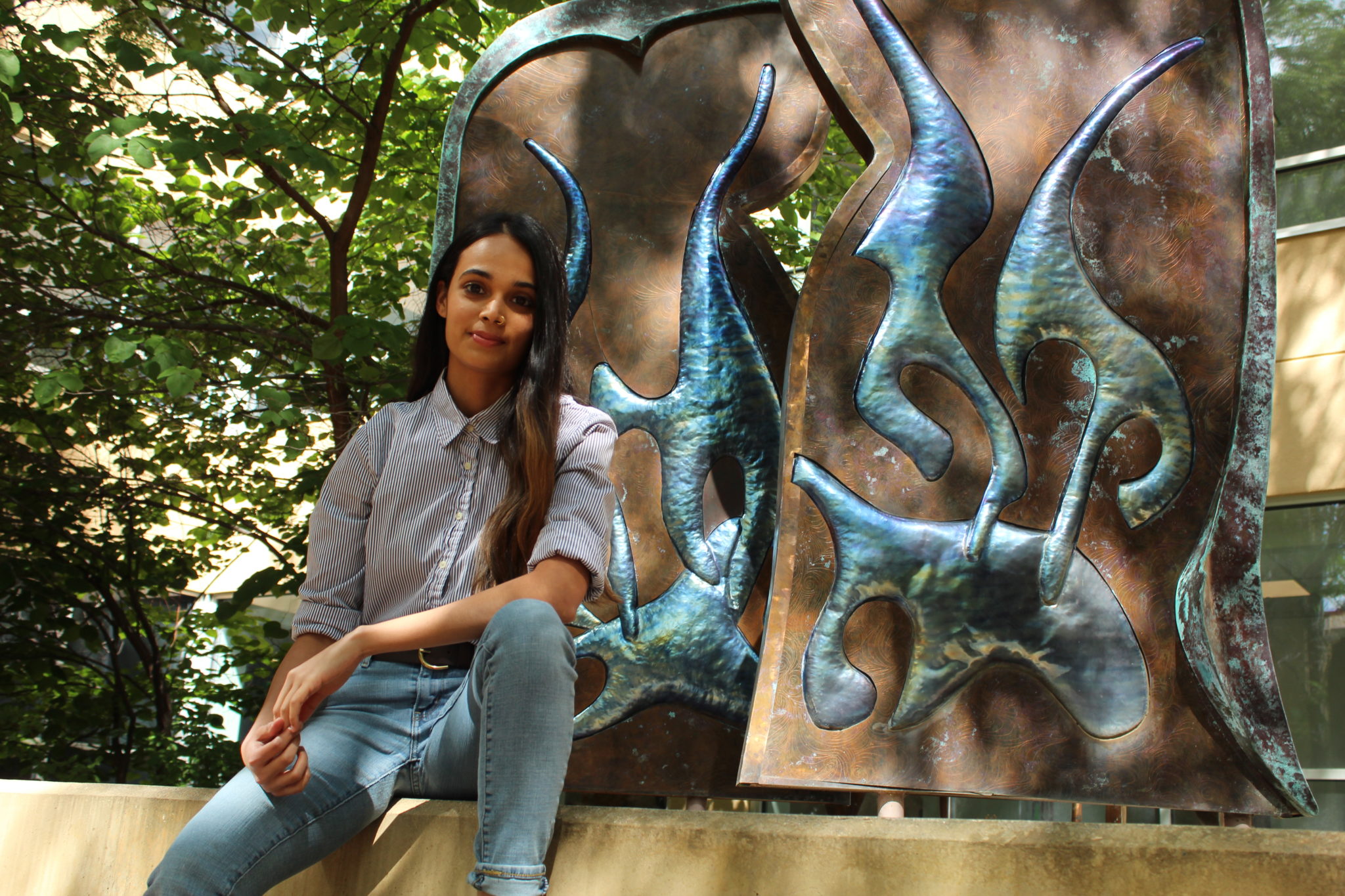
CSU Rams are finding confidence, inspiration and meaning in new ways this year. For Lakshitha (Luck-sheath-ah) Nagesh, a senior undergraduate student majoring in International Studies and Political Science, it was by virtually attending the four-day Harvard Project for Asia and International Relations Summit as a delegate Aug. 20-23.
HPAIR serves as a forum for idea exchange and networking among the top leaders and experts of today, and the future leaders of economics, politics and the humanities in the Asia-Pacific region by hosting two student-led conferences a year – one on Harvard’s campus and one in the Asia-Pacific region. Conference activities include speeches from keynote speakers, networking forums and Impact Challenges in which delegates work together to design solutions to critical issues in Asia. This year’s conference was to be held in Taipei, but due to pandemic-related travel restrictions events were done virtually instead. Nagesh was CSU’s only representative this year, and was joined by more than 10,000 students from top universities across the country.

During the summit, Nagesh had the opportunity to meet and interact with many prestigious and inspiring people. She said Aparna Bawa (chief operating officer of Zoom), N.R. Narayana Murthy (founder of Infosys), Katherine Tai (U.S. trade representative), Sri Mulyani Indrawati (minister of finance of Indonesia), Muhammad Yunus (winner of a 2006 Nobel Peace Prize), Lord Ed Vaizey (member of the House of Lords, U.K.) and Professor Soborno Isaac Bari (youngest professor in the world, 9 years old) as being her most personally influential speakers.
“I would never have thought of even interacting or meeting any of these people in real life,” Nagesh said.
Through polls and Q&A sessions, delegates were able to talk to and brainstorm ideas with the keynote speakers, as well as network with fellow attendees.
“I was able to relate to many of the leaders present either through their stories of making it as a minority in prestigious institutions, typically dominated by the majority race (like Manny Maceda), or because of the grit they demonstrated in doing their part for a environmentally sustainable future (like the co-founders of Banyan Holdings),” Nagesh said.
The main event of the HPAIR summit, though, was the Impact Challenge.
“Our team of three were given case studies from the UNDP (United Nations Development Programme), and from the list we chose to tackle the issue of soil toxicity and food security in Nepal,” Nagesh said.
Together, they worked on developing a self-sustaining enterprise fit for operation in Nepal.
“As a team, we knew from the start that we wanted every part of the project to be built on environmental sustainability, reducing carbon footprints, minimizing the need for technological innovations, and empowering the farmers of Nepal,” she explained.
From their work, the “SWAAS Agricultural Technology Company” was born. The role of this hypothetical company would be to “reduce soil toxicity levels through phytoextraction, improve biodiversity by using crop seeds native to Nepal and work in collaboration with farmers to monitor soil levels through sensors,” Nagesh said. After this initial stage of work, delegates were then able to consult with attending experts and professionals on how to best present their solution, sometimes resulting in startups and internships after the conference.
“Conferences and activities like HPAIR are immeasurably valuable to students, especially when it comes to broadening your knowledge base, developing essential skills, and creating new connections.”
“HPAIR showcased the capacity of diverse companies and groups to come together to collaborate on issues of sustainability and development, something that has inspired me to start talking to other students about getting involved with conferences,” she said. “I actually found out about HPAIR on LinkedIn, and I would encourage other CSU students to spend time searching for opportunities online, as well as reaching out to professors and advisors for advice. Conferences like this aren’t just for Political Science or International Studies majors.”
Nagesh added, “Conferences and activities like HPAIR are immeasurably valuable to students, especially when it comes to broadening your knowledge base, developing essential skills, and creating new connections.”
She noted that branching outside of your university “safe spaces” to put in work and gain experience can truly guide your future.
Nagesh is originally from the city of Chennai in India, and hopes to return there in the future to implement the things she has learned at HPAIR on the interdisciplinary approaches to sustainability.
“It would be great to go back to my community and create meaningful change,” she said.
After graduation, Nagesh plans to pursue a graduate degree at CSU through the Impact MBA program, a decision that her experience with HPAIR has firmly solidified.
“Receiving firsthand advice from some of the most influential people in the world, many from Asian-American backgrounds like myself, was encouragement enough for me to pursue my future and academic goals,” she said.
Through these conference experiences and her involvement with the Indian Student Association and the Beyond Barriers company, chances are good that Nagesh will be able to actualize her dream.